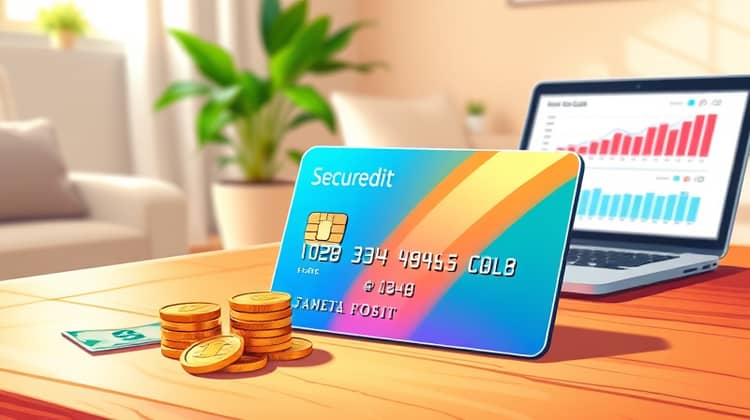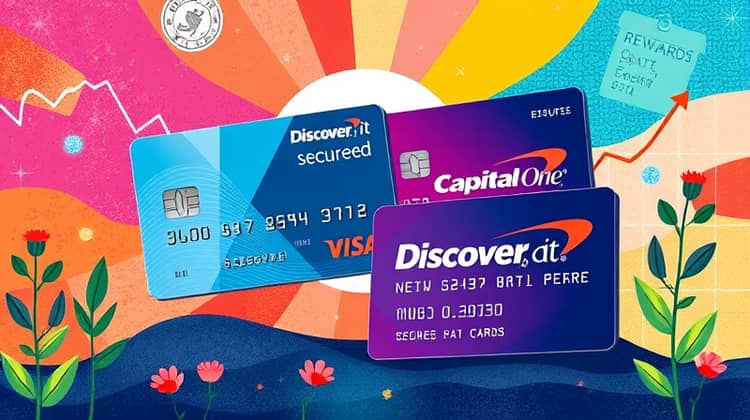When it comes to building or rebuilding credit, a secured credit card may be the best option for individuals looking to establish a positive credit history. These cards are designed for people with poor credit or limited credit history, giving them an opportunity to prove their creditworthiness over time. Secured credit cards require a cash deposit that serves as the credit limit, offering a secure way for lenders to mitigate their risks.
Unlike traditional credit cards, secured credit cards typically require a security deposit that is held by the issuing bank. This deposit usually ranges from $200 to $500 and can often be refunded when the account is closed or transitioned to an unsecured card. By using a secured credit card responsibly, you can rebuild your credit score and improve your financial standing.
In this article, we will explore the ins and outs of secured credit cards, how they work, the steps to obtain one, and tips for making the most out of your secured credit card experience. Let's delve into what secured credit cards are and how they can benefit you in your journey to financial recovery.
What is a Secured Credit Card?

A secured credit card is a type of credit card that requires a cash deposit as collateral. This deposit typically serves as your credit limit and helps reduce the risk to the lender. When using a secured credit card, cardholders are expected to make monthly payments just like with any other form of credit. Responsible usage can result in improved credit scores, which is the primary goal for many applicants.
Secured credit cards are particularly beneficial for individuals with poor credit histories or those just starting out in the credit world. Unlike unsecured credit cards, which are based on creditworthiness, secured cards allow users to establish or rebuild their credit profiles while minimizing the risk for the bank. This makes them an attractive option for many.
By using a secured credit card wisely, borrowers can demonstrate their ability to manage credit sensibly. Timely payments and maintaining low balances relative to the credit limit can positively impact credit scores, paving the way for future credit opportunities.
Why Choose a Secured Credit Card?

Secured credit cards offer several advantages, making them the ideal choice for individuals looking to rebuild their credit. First, they are generally easier to obtain compared to unsecured cards, even for those with a history of missed payments. This accessibility is key for those keen on improving their financial standing without facing overwhelming hurdles.
Furthermore, secured cards often come with the abilities to report to credit bureaus, meaning that responsible use can have a positive impact on the user's credit history. Establishing a reliable payment pattern through a secured card can lead to increased credit scores over time, and eventually open doors to better financial products.
Aside from improving credit scores, secured cards can also teach financial discipline. They require users to deposit money upfront, which encourages them to spend responsibly and manage their budgets effectively.
- Easy approval for those with poor credit.
- Helps build or rebuild credit histories.
- Offers a way to learn responsible credit use.
Using a secured credit card responsibly ensures that you are on the right path to improving your credit score. It's important to adopt sensible spending habits and keep track of your expenditures to avoid overspending.
How Does a Secured Credit Card Work?

Typically, secured credit cards operate similarly to unsecured cards, but with some key differences. When applying for a secured card, you are required to make a cash deposit that will serve as your credit limit. For instance, if you deposit $500, you will have a credit limit of $500. This deposit is refundable when you close the account or graduate to an unsecured card.
As you use your secured card, the issuer will report your payment history to the credit bureaus. This means that timely payments can help improve your credit score over time. It is vital to keep your spending within the limit and make full payments to avoid accruing interest.
- Payment history is reported to credit bureaus.
- Deposit acts as collateral and credit limit.
- Interest rates can vary based on the issuer.
Ultimately, secured credit cards provide a safety net for both lenders and borrowers, allowing users to build credit while limiting risks. With careful management, they can be stepping stones toward financial stability.
Steps to Get a Secured Credit Card

Getting a secured credit card is a relatively straightforward process, culminating in a simple approval or rejection.
- Research various secured credit cards to find one that fits your needs.
- Complete the application, including providing personal and financial information.
- Make the required security deposit to activate the card.
- Receive your card and begin using it responsibly.
By following these steps diligently, you can secure a secured credit card that can help put you on track toward rebuilding your credit effectively.
Tips for Using a Secured Credit Card

To make the most of your secured credit card, here are some essential tips. First and foremost, keep your credit utilization low. Aim to use less than 30% of your credit limit to positively influence your credit score. Being mindful of your spending is key when rebuilding credit.
Secondly, always make your payments on time. Setting up automatic payments or reminders can help ensure you never miss a due date, which can significantly lower your credit score. Consistent on-time payments demonstrate reliability and responsibility to creditors.
- Pay on time every month.
- Utilize less than 30% of your credit limit.
- Consider automatic payments for convenience.
By adhering to these best practices, you can effectively rebuild your credit and pave the way for a better financial future.
Transition to an Unsecured Credit Card

Once you've successfully used a secured credit card for a while and demonstrated responsible credit behavior, you may be ready to transition to an unsecured credit card. Typically, this process involves contacting your card issuer to discuss your options.
As your credit score improves and you establish a track record of on-time payments, lenders may begin to offer you other credit products that do not require deposits. It's important to review these offers carefully before making any decisions on upgrades.
Challenges Associated with Secured Credit Cards

Although secured credit cards offer numerous benefits, they also come with some challenges. One primary drawback is the requirement for a security deposit, which can be a barrier for some individuals. If funds are tight, tying up money in a deposit may not be feasible for everyone.
Additionally, while most secured cards report to credit bureaus, not all do. This could hinder your ability to build credit effectively if you choose a card that doesn't provide this feature.
- Security deposits can be a financial burden.
- Some cards may not report to credit bureaus.
- Higher fees than unsecured cards may apply.
Understanding these challenges can help you make informed decisions when pursuing a secured credit card, ensuring it aligns with your financial goals.
Popular Secured Credit Cards

There are several secured credit cards available in the market, each offering different benefits and terms that may fit individual needs. Some of the most popular options include the Discover it Secured Card, which not only reports to all three credit bureaus, but also offers cashback rewards for purchases. This card is particularly beneficial for users aiming to maximize their benefits while rebuilding credit.
Another option is the Capital One Secured Mastercard, which features no annual fee and allows cardholders to access a higher credit line after making their first five monthly payments. This card can be especially attractive if you're looking to transition to an unsecured credit card in the future, as it rewards good credit behavior.
Conclusion

Secured credit cards provide a valuable opportunity for individuals looking to rebuild their credit histories effectively. They are designed to help users establish financial responsibility and pave the way toward a better credit score and more favorable credit products in the long run. With their inherent safety features, they offer peace of mind to both consumers and lenders alike.
By understanding how secured credit cards function, the steps to acquire one, and how to utilize them wisely, you can take significant strides toward improving your financial situation. The key takeaway is that responsible use of credit can lead to greater financial freedom and independence over time.














